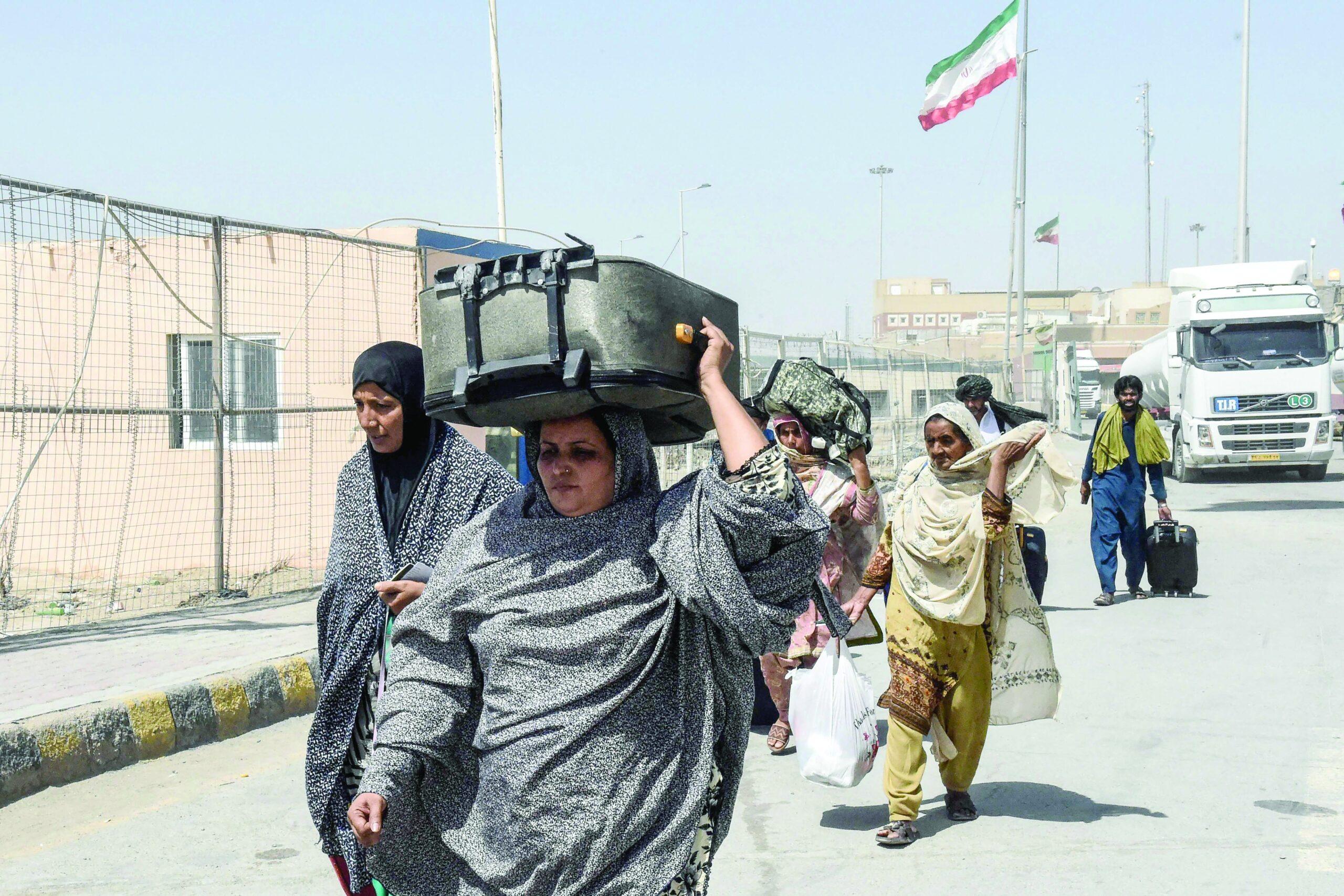Taftan:
Mohammad Hassan returned anxiously to neighboring Iran Pakistan this week after having witnessed drones, missiles and explosions tearing the sky of Teheran during what he called “horrible nights”.
The student of the University of Tehran, 35, is one of the 3,000 Pakistani who, according to the Ministry of Foreign Affairs, returned home since Israel launched his air war against his long -standing enemy last week.
Governments around the world rush to evacuate their nationals caught in the conflict quickly in a spiral while the missiles and commercial drones Israel and Iran.
“I was in the city center where most of the strikes took place and even one of the student dormitories was attacked and fortunately, no one had died, but the students were injured,” said Hassan.
There are more than 500 Pakistani students in his university only, he said, all on their way “at home”.
“These days and nights have been very horrible … Hear the sirens, groans, the danger of being struck by missiles. While one looked out the window at night, you could see drones, missiles with tails of fire,” he told AFP.
Mohammad Khalil, a 41 -year -old petroleum engineer, left Tehran three days ago, the capital of the Islamic Republic resembling a ghost city while residents sheltered inside and families were buried.
“In the past two days, I saw people leaving the city in different vehicles with the necessary products,” said Khalil.
Abdul Ghani Khan sells medical equipment in Peshawar and regularly goes to Iran for supplies.
He had been in Tehran for a week when the first Israeli missiles fell on Friday.
Khan had to travel by road because the airspace is now closed. Pakistan has also closed its border passages with Iran to all, except that the Pakistanis wishing to return home.
“We have seen drones, red lights of anti -aircraft cannons and I spotted a construction shot,” said Khan.
Mohammad Asif, a lawyer for Lahore in eastern Pakistan, heard of air strikes during a pilgrimage to Qom. He was not first afraid and continued his pilgrimage to Mashhad.
It was until the Israeli strikes hit the airport in Mashhad, nearly 1,000 kilometers (620 miles) from the Pakistani border.
Samreen Ali was also in Mashhad but, like Asif, cut his short trip and returned with her husband and her 15 -year -old son. She prayed in a mosque in Mashhad when Israel hit the city.
Ali said that she had visited Iran nine times before on pilgrimages and had never imagined that he witnessed the war there. “I offered prayer when I heard two explosions,” she told AFP.
She then noticed that she did not receive messages on her phone and assumed that “communication was limited … because of the war”.
Syed Saqib, 46, was in Qom and had to travel 500 kilometers (310 miles) by bus south-east of Yazd. “We had to take alternative routes, spend an entire night waiting in a bus station,” said SAQIB.
They then climbed on the bus for Zahedan, a city near the border with the Balutchistan province in Pakistan. A relieved SAQIB remembers having border crossing in Taftan, surrounded by families with heavy luggage.




